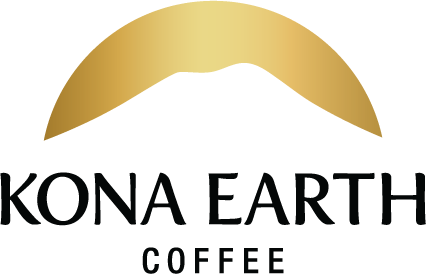If you're a coffee lover, then you need to add Hawaii's Big Island to your list of destinations. This island is more than just sun, surf, and sand. It's home to some of the world's finest specialty coffee: 100% Kona coffee. What makes Kona coffee so special? Read on to learn more.
Volcanoes and Goldilocks:

Photo courtesy of NPS.org
Beyond the beach, Volcanoes National Park is one of Hawaii's most-visited tourist destinations. Currently active, Kilauea's most recent eruption can be seen from various viewing locations within the park and is especially beautiful at night, when the spectacular glow of the lava is set in relief against the dark, night sky.
But Hawaiian volcanoes are more than just geological phenomena. Their very existence creates a 'Goldilocks' environment for growing coffee: not too hot, not too cold; not too wet, not too dry; and not too high, not too low. In other words, it's just right. Kona coffee plants thrive in rich volcanic soil and a temperate climate. That's why Kona coffee is some of the best in the world.
Kona Earth is a family-owned farm in the heart of Kona's famed coffee belt. At an elevation of 2200 feet, it's considered a high-elevation farm. Hot, sunny mornings give way to almost daily afternoon showers and cool evenings. This micro-climate ensures that the Kona coffee trees get ample sun and water, with no temperature extremes to stress the plants. The coffee fruit, known as cherry, matures slowly, resulting in large beans of exceptional quality.

Large cherry fruit on Kona Earth's farm
In addition to this exceptional volcanic terroir, the volcanoes also impact weather patterns which benefit Kona coffee farms. During the summer months, the trade winds that normally blow from the east are disrupted by volcanic activity. Instead, they come from the south, bringing with them warm, moist air. This results in an extended coffee-growing season and a larger coffee crop.
These Goldilocks conditions are only located in the Kona coffee-growing region on Hawaii's Big Island which is only about 5 miles wide and 30 miles long. A small geographic area, the coffee produced there is exceedingly special and rare. In fact, 100% Kona coffee beans make up less than one percent of all the coffee grown in Hawaii. An important note: any Kona blend that is less than 100% Kona is a mixture of inferior beans from other parts of Hawaii or other coffee-producing regions around the world. If you want the true taste of delicious Kona coffee, always look for 100% Kona coffee on the packaging.
Kona Coffee Farm Tours
In Hawaii, a bulk of the Kona coffee farms are small family-run operations. Many offer tours that give visitors a behind-the-scenes look at how this Hawaiian specialty coffee is grown. This is a special treat for true coffee lovers who appreciate knowing exactly where and how Kona coffee is made.

Kona Earth owners Steve & Joanie Wynn
Grown by husband and wife team Steve and Joanie Wynn, Kona Earth's coffee is single-estate. This means that all of the coffee beans used to make their 100% Kona coffee are grown on their farm. Their beans are never blended with coffee from other farms or regions.
The Wynns take an artisanal approach to their Hawaii coffee production. They handpick, sun-dry, then wet-mill process the beans on site. They micro-roast their coffee in small batches, ensuring that each batch is uniformly roasted to perfection. Equally important, their coffee is shipped whole bean directly from the farm. You can't find a more personal approach or a fresher Kona coffee than Kona Earth.

Kona Earth micro-batch roasts on-site
Authentic Hawaiian Kona coffee is truly a unique product. The combination of Hawaii's ideal growing conditions, small family farms dedicated to quality, and artisanal roasting methods result in a coffee that is simply unparalleled. So the next time you're looking for a special treat, be sure to reach for 100% Kona coffee from Hawaii's Big Island. And if you are so lucky to be visiting this tropical paradise, be sure to take a tour of one of the many small family farms that produce this exceptional coffee. You'll be glad you did!



1 comment
I am coffee lover . Your information is really very informative.
https://socialbrew.us/